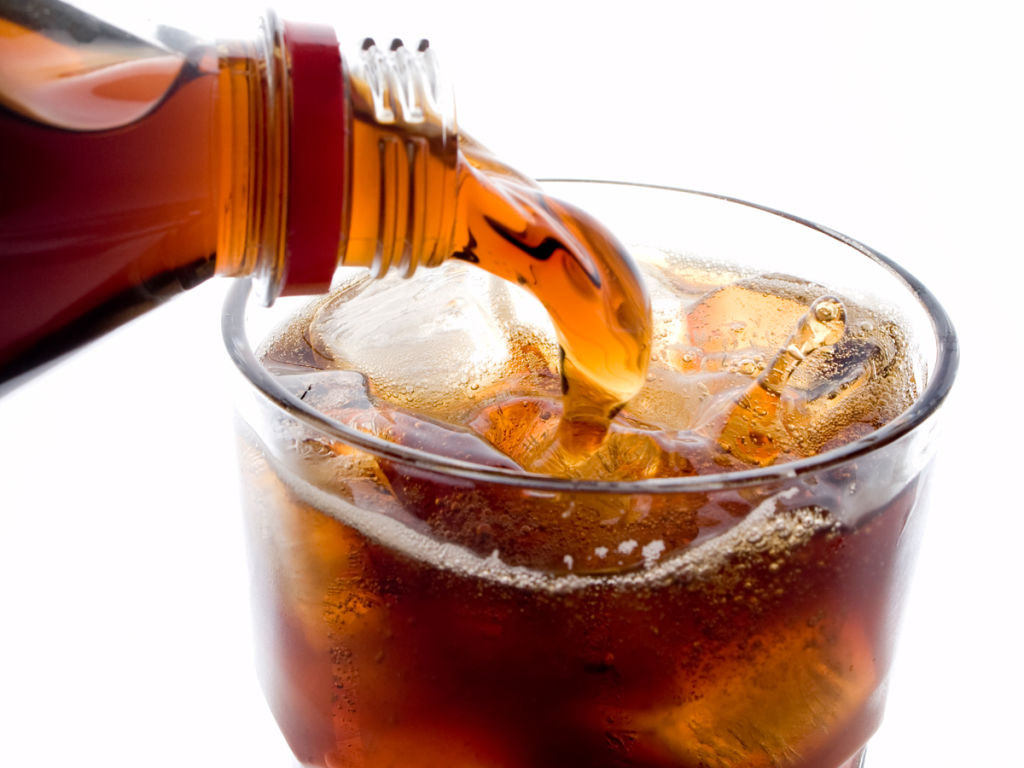How to: Give up soft drink

Hi, I’m Larissa, and I’m a Coke addict (no, not that kind).
Sure, I’m not downing 30 cans a day, or shopping at the big ladies’ store just yet. But this habit – which seems to be gradually creeping up from one can a day to two – is just getting embarrassing.
The ‘black doctor’ has long been my motivation in a can; the sugar and caffeine surge helping me hit numerous work deadlines. It’s kept me awake during early morning and late night shifts, cured hangovers and given me an instant fizz when I’m feeling flat.
For at least a decade, it’s also been an ongoing theme in my conversations. “I’ll give up tomorrow,” I tell bemused workmates. “I’ll stop as soon as I get overseas.” “How bad can one can or two cans of Coke a day really even be?” (And then there it is … that delicious crack of another can opening…).

But alas, all good things – or terrible things in this case – must come to an end.
I’ve hit 40, and the thought of eventually potentially developing Type 2 diabetes, like two million other Australians, is more than a tad unappealing. After all, I quite like my limbs, my teeth and my eyesight. And, let’s be honest, recently my jeans have got just that bit tighter.
This time, I’m turning to the big guns.
How much sugar we’re actually consuming
Enter Dr Peter Brukner, previously a doctor for the Australian cricket team, Liverpool Football Club and the Socceroos. He’s written the book A Fat Lot of Good, and is helping head up the SugarByHalf health campaign.
“The average Australian has about 16 teaspoons of added sugar a day so we want to cut that down by about half to get down to the sort of levels recommended by the WHO (World Health Organisation),” says Dr Brukner.
“Soft drinks are certainly the biggest cause, certainly among teenagers anyway, they’re a very big factor in the daily sugar load.”
Most of us have heard the stats, but here’s a not-so-sweet reminder. A 375ml can of Coke contains 10 teaspoons of sugar, while a 600ml bottle has 16.
“Sprite is pretty much the same; so is Fanta and Solo,” says Dr Brukner. Red Bull lovers are drinking seven teaspoons in a 250ml can.
Then there are the ‘sports’ drinks, which you’d assume might be a little healthier. Nope. The average Gatorade or Powerade bottle has 10 teaspoons, says Dr Brukner.
We know it’s bad, so why do we swig it?
For most of us, the sugar count is not that surprising. So why do we drink it?
“I guess with so much added sugar and sweetness in our diets … we’re just really accustomed to the sweetness,” says public health nutritionist Jennifer Peters, who designs programs for That Sugar Movement, a spin-off from That Sugar Film.
“It definitely lights up the reward centres of your brain that are similar to other addictions, so there’s definitely the addictive nature to it.”
Strategies to start ditching the sugar
To start cutting down, Peters says it’s important to identify what triggers your habit or sugar craving.
“Is it the 3pm pick-me-up, or is it a habit when you get home from work you open one, or you have it with your lunch? It’s such an individual thing.”
She recommends a gradual approach, but notes it’s important to reduce other, often hidden, sugars in your diet too.

“We don’t expect everyone to cut out their vices completely, you just set yourself up to fail I think. If you can lose a can of Coke a week, that’s a great start.”
Dr Brukner says it depends a little on the individual.
“Some people find that if they go cold turkey that they have withdrawal symptoms for a couple of days, so that can be tough. But you get through that pretty quickly, and that’s probably still the quickest and best way to go about it.”
Less sugary substitutes
It’s important to make sure you don’t replace your usual soft drink with other drinks such as fruit juice, which are also sugar-heavy, he says.
Instead, think tea, coffee, sparkling water, kombucha or tap water with some fresh fruit thrown in.
How about Diet Coke? It may not be quite as bad as the full-strength stuff, says Dr Brukner, but there’s little to recommend it.
“There’s been longstanding concerns about the toxic effects of some of the things in Diet Coke, which are unresolved,” he says. “The second thing is that diet drinks don’t actually help you lose weight … because they still stimulate the same hormones.”
As you’re drinking, picture this…
Of course it might help to think about what’s actually happening to your body when you’re swigging away. First you’ll get a surge of glucose into your blood – then insulin is released into your pancreas to disperse it, with any excess converted straight to fat.
“After a period of time you become what’s called insulin resistant,” says Dr Brukner. “Your insulin doesn’t work as well anymore so you have to produce more and more insulin, and insulin resistance seems to be a basis of not just obesity, but diabetes and metabolic syndrome and a lot of chronic diseases.”
Even after one week of going without the fizz, Dr Brukner promises you’ll feel a whole lot better.
“Most people will lose weight, which is usually a good thing. Secondly, their energy levels will be more stable and they may well sleep better,” he says. “They will concentrate better and won’t have those ups and downs of feeling flat.“
As for me? I’m at day six (I’ve slipped once). So far I feel grumpy, but determined. And I’m looking forward to having the waistline of a supermodel – perhaps next week.
We recommend
States
Capital Cities
Capital Cities - Rentals
Popular Areas
Allhomes
More







